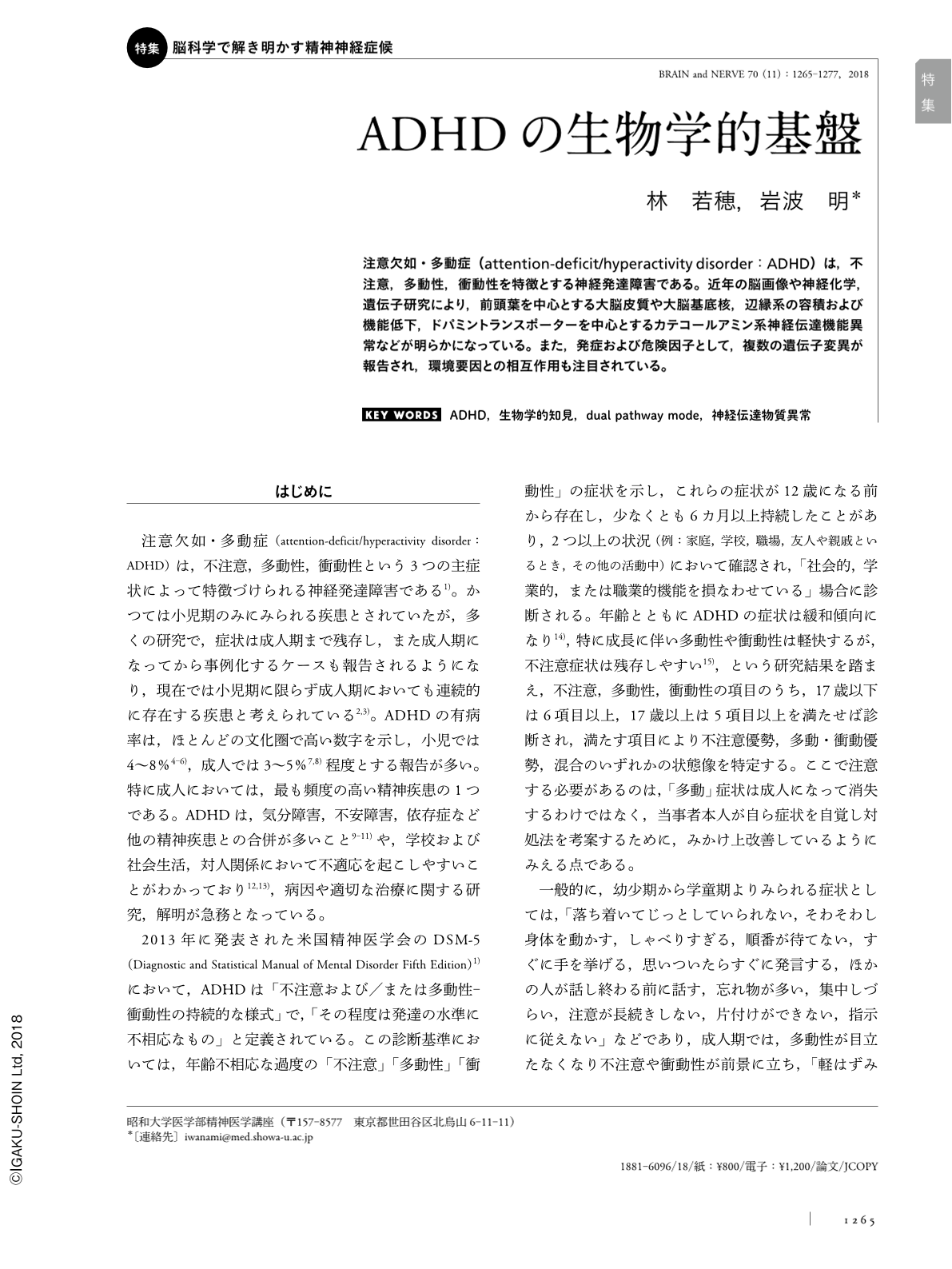Japanese
English
- 有料閲覧
- Abstract 文献概要
- 1ページ目 Look Inside
- 参考文献 Reference
注意欠如・多動症(attention-deficit/hyperactivity disorder:ADHD)は,不注意,多動性,衝動性を特徴とする神経発達障害である。近年の脳画像や神経化学,遺伝子研究により,前頭葉を中心とする大脳皮質や大脳基底核,辺縁系の容積および機能低下,ドパミントランスポーターを中心とするカテコールアミン系神経伝達機能異常などが明らかになっている。また,発症および危険因子として,複数の遺伝子変異が報告され,環境要因との相互作用も注目されている。
Abstract
Attention-deficit hyperactivity disorder (ADHD) is a neurodevelopmental disorder characterized by inappropriate levels of inattention, hyperactivity and impulsivity. Recent developments in neuroimaging and functional brain studies have revealed volumetric reductions and decreased neural activities in the frontal lobe, basal ganglia, limbic system, and cerebellum. Based on these findings, impairment of executive function and the reward system, reffered to as the dual pathway model, and dysfunction of the default mode network have been proposed as biological changes underlying ADHD. Bio-pharmacological studies have shown dysfunctions in catecholamine- regulated neurotransmission, especially dysfunction of dopamine transporters, which the therapeutic drug of methylphenidate is thought to modulate. Agrowing body of genetic research suggests the high heritability of ADHD and several candidate genes relating to dopamine synthesis and transmission have been identified. Epigenetic modification is also garnering much attention in ADHD research and the mutual effects of environmental factors and genetic polymorphism have been reported. Despite such accumulative findings, how genes, the environment, and brain functioning interact and relate to create the symptoms of ADHD are still unknown and more research is needed to uncover the biological mechanisms of ADHD.

Copyright © 2018, Igaku-Shoin Ltd. All rights reserved.


